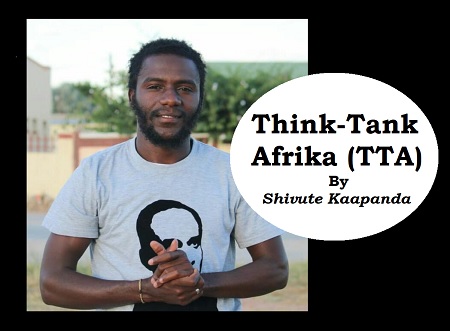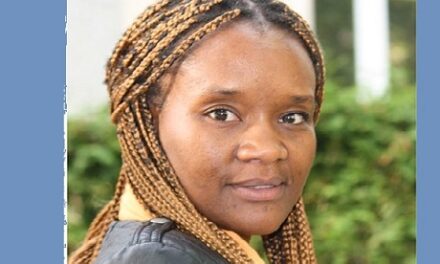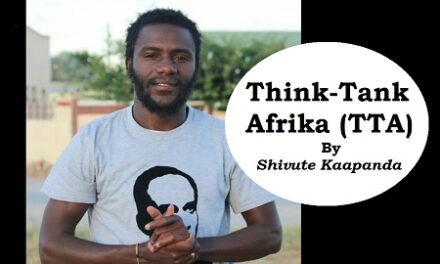Restoring “Ombala-yaanhu” in Ombalanhu Kingdom
By Shivute Kaapanda [Think Tank Africa]
In discussing healthy traditional governance in Africa particularly in the Namibian context of traditional leadership we often invoke the term inter-clan equality not to only clearly define the democratic path of kingship succession but also to clear out the system of one royal-clan associated with many traditional authorities in Namibia.
In Namibia especially among Aawambo people’s system of kingship succession is based on one-clan rule which gives an impression of a monarchial kind of traditional governance to a particular traditional community through a traditional leadership succession based only on people from a particular clan notoriously believed to be a royal clan among many other clans within that particular traditional community.
In many instances a particular clan, for example in Ondonga traditional authority, has traditionally and historically, through ancient times and for unknown traditional reasons mostly autocratic and static rather than dynamic, is believed to possess certain traits to rule that particular traditional community.
According to this traditional practice nobody else, whether one demonstrates outstanding leadership quality among the members of a traditional community, shall ever succeed a king or a queen for as long as they don’t belong to that sacrosanct royal clan.
But given today’s developments in a modern world with different models and systems of governance the royal clan theory can no longer sustain a modern traditional community; it was indeed during the early years of history in traditional leadership when people could not freely question when things such as royal clans were tolerated.
Nowadays it’s very discriminatory and very toxic to say only a certain group of people, such as a clan, have a God-given authority to rule a particular traditional authority because we are now a nation-state operating under the rule of law rather than the rule of man or clan.
The constitution of the republic of Namibia chapter 3 Article 10(1) clearly states that all persons shall be equal before the law. Article 17 of the same chapter states that all citizens have a right to participate in peaceful political activity intended to influence the composition and policies of government whether directly or through freely chosen representatives.
It goes therefore to say the supreme law of the republic of Namibia reigns supreme above all laws within the republic be it what. It is therefore not a legal thing or in other words it’s unconstitutional to alienate, deprive or discriminate the people of Namibia from taking part in a traditional leadership or becoming members of it based on the old-aged belief that only people from a particular clan or group can actually be in the leadership or taking over the kingship even if they are known to be village nincompoops their proximity or relation to the royal clan is what matters most and not the leadership skills they have.
Among the traditional authorities in the northern Namibia is “Ombalanhu Traditional Authority” known for its long lasting traditional leadership disputes second to Ondonga since and after the notorious King Kamhaku kaHuhwa.
The current traditional leadership of Ombalanhu is born out of the ideal of a royal family rather than the inter-clan equality which was the case before King Kamhaku kaHuhwa who by his autocratic power destroyed the concept of Ombala-Yaanhu (People’s Palace) and replaced it with Ombala ya-Kamhaku kaHuhwa which was marred by vicious and autocratic leadership until his assassination around the end of 16th century.
It is for this reason that the people of Ombalanhu through the Organization of Ombalanhu United Clans are peacefully and legally mobilizing for the restoration of the concept of equal rulership known as “Ombala-yaanhu” translated as ‘People’s palace’ which subscribe to the idea of inter-clan equality and gives equal leadership representation and succession to all the clans within the traditional community of Ombalanhu.
With this style of leadership all clans will have equal number of seats in the people’s palace. This will kill the long-lasting stigma of alienation in terms of kingship succession and it will give an equal chance to all the people of Ombalanhu within their clans an opportunity to become part of the traditional leadership unlike the status quo where only members of a particular clan are believed to be rulers of Ombaanhu which is very discriminatory and outdated style of leadership succession.
We therefore encourage all the people of Ombalanhu as well as other traditional communities wherein the order of kingship succession is based on one particular clan to raise up and change the way things are done.
There is a need for equal and fair participation in government affairs including traditional affairs as provided for by the constitution of this land and therefore there is no reason to get stuck in the past and discriminate each other based on anything when it comes to leadership.
* Shivute ShaNandjila Imms YaKaapanda is a writer from Eyanda village in Omusati Region iskaapanda@gmail.com







